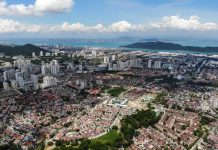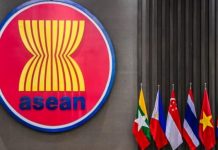By Mich Goh
As Malaysia approaches the Budget announcement on 18 October, Airbnb has outlined several key policy recommendations that could significantly impact the nation’s tourism and hospitality sectors. These proposals are aimed at harnessing the potential of the sharing economy to support economic recovery, promoting sustainable tourism, and driving inclusive growth for all stakeholders in the industry.
The sharing economy, particularly within the hospitality sector, has been a critical driver in Malaysia’s tourism recovery. Not only does it provide an essential source of supplemental income for local hosts, but it also offers diverse accommodation options that cater to the evolving needs of travellers.
Airbnb has actively engaged with industry stakeholders to support the formulation of Malaysia’s national Short-Term Rental Accommodation (STRA) guidelines. We encourage the federal government to support and endorse these guidelines, which will be the first of their kind in Southeast Asia. By doing so, Malaysia can showcase its dynamism in embracing innovation and spur further growth in the tourism industry.
A Balanced Review of the Tourism Industry Act 1992 (TIA)
Airbnb welcomes the government’s initiative to review the Tourism Industry Act 1992. We believe that it is crucial to strike a balance between regulation and innovation. We urge the government to adopt practical and forward-thinking measures, avoiding unnecessary restrictions that could hinder growth in the tourism sector.
Airbnb remains ready to collaborate with the Ministry of Tourism, Arts and Culture (MOTAC) to provide valuable insights, ensuring that the revised TIA supports sustainable tourism development and fosters long-term economic growth.
Extending Key Incentives to STRA Hosts
To create a more inclusive tourism landscape, Airbnb advocates for extending key incentives—such as grants and travel promotions—that are currently only available to traditional tourism players. This should include individual STRA hosts and small- and medium-sized enterprises (SMEs).
By doing so, the government can foster economic empowerment, particularly in underserved communities, and promote a more equitable recovery across the tourism industry.
Airbnb also encourages the government to explore new initiatives that allow young Malaysians to use income earned through STRA to offset the cost of purchasing their first homes.
By partnering with financial institutions to develop special financing schemes, the government can help empower a new generation of homeowners to leverage their hosting income to ease financial pressures, thus contributing to both economic growth and housing affordability.
A Partner in Malaysia’s Tourism Future
“Airbnb remains committed to being a partner to the Malaysian government in supporting the growth of the travel and tourism industry. We are excited about the forthcoming Budget 2025 and look forward to collaborating with the government to propel Malaysia’s tourism industry forward in a more sustainable and inclusive manner.
Airbnb recognises the Malaysian government’s proactive efforts to stimulate sustainable economic growth, which have laid a robust foundation for the tourism sector. As the country prepares for Visit Malaysia Year 2026, we believe that these initiatives will further enhance Malaysia’s appeal to both domestic and international travellers, while supporting local communities through home-sharing opportunities.
Tourism remains a critical pillar of Malaysia’s economy, contributing 15.1% or RM275.8 billion to the nation’s GDP in 2023, up from 13.9% the previous year. Airbnb plays a significant role in this ecosystem, contributing RM5 billion to Malaysia’s GDP and supporting nearly 57,000 jobs between April 2022 and March 2023. This contribution represented 4.9% of the total GDP generated by the tourism industry during the same period.
Through home-sharing, Malaysians can earn vital supplemental income, especially amid rising costs. Our platform has played a significant role in improving the livelihoods of local communities. The travel facilitated by Airbnb has also created a flourishing ecosystem that benefits local businesses and generates job opportunities across the broader economy.
Promoting an Inclusive Malaysia
We also applaud the Malaysian government’s recent revisions to the Malaysia My Second Home (MM2H) programme. These positive changes are a step towards promoting a more inclusive and vibrant community of international residents and investors in Malaysia.
As Airbnb continues to support Malaysia’s tourism sector, we remain committed to working hand in hand with the government and other stakeholders to create a sustainable, innovative, and inclusive future for travel and tourism in Malaysia.


























